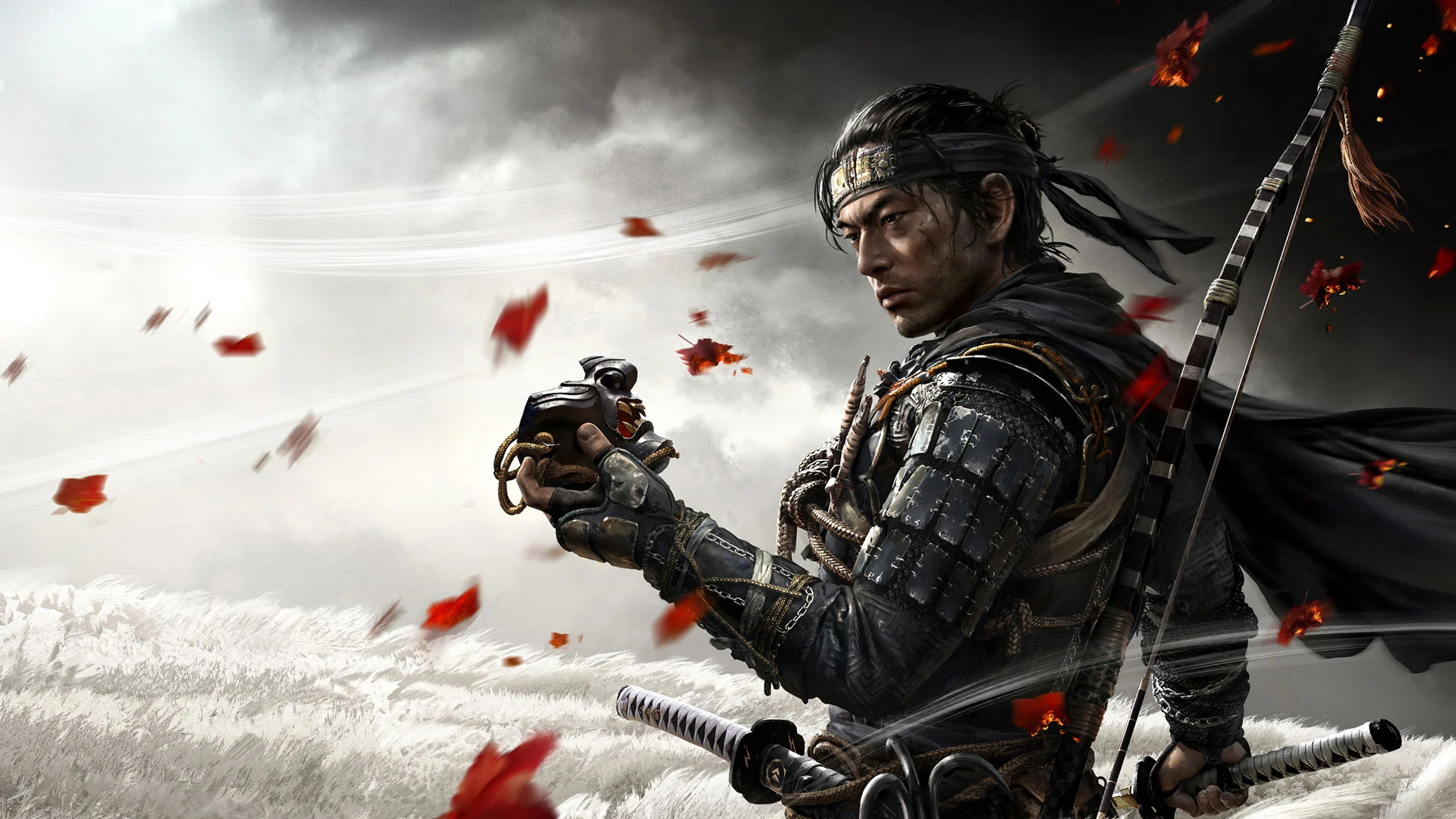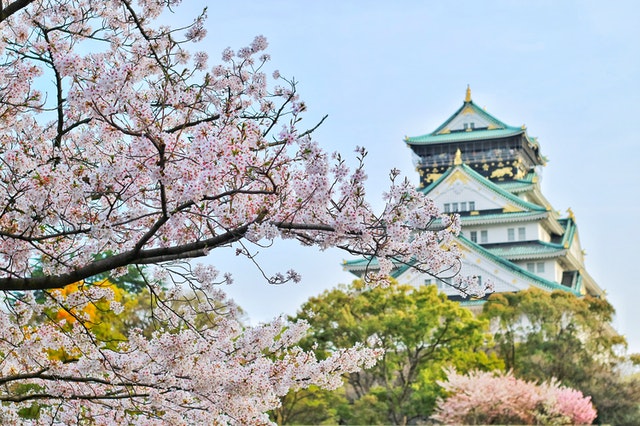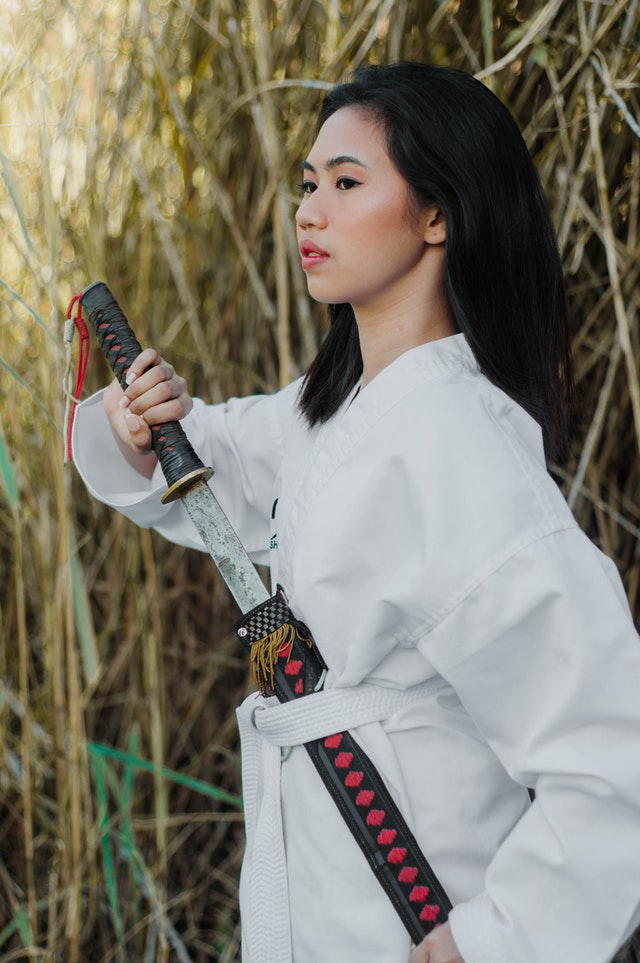
Ghost of Tsushima
Near my father's grave
Search through the cherry blossoms
For 5x Supplies
Early in 2020’s Ghost of Tsushima, the protagonist, a young samurai named Jin Sakai, sits down fully nude in a hot spring to think about his uncle, the jitō of Tsushima island and head of Clan Shimura. He does so because he has a lot on his mind — his role as a leader to the people of Tsushima, and the various foxes he follows around, and the unspeakable body count he's amassed while doing genocide to the Mongol people — but more than anything else, he thinks about honor. Jin’s uncle loves honor, and Jin doesn’t want to disappoint him.
At first glance, then, you might think that Jin’s struggle with honor as it relates to family expectations and his own principles is what Ghost of Tsushima is all about. On some level, that’s true. On another level, though, the game is about a huge boring nerd whose internal struggles over how best to subjugate his serfs serve primarily to illustrate what the game should have been about:
Jin’s old friend, the Straw Hat Ronin Ryuzo.
In terms of basic aesthetics, Jin brings a lot to the table. He’s a samurai, and the game’s fluid controls and polished animations allow him to really feel like it; he slices through enemies with the greatest of ease, and when he duels, he does all kinds of Sergio Leone eye squints and hand twitches. Anybody who has ever seen and enjoyed a Spaghetti Western or a Kurosawa samurai movie would probably look at these aesthetics and hope to have their veins opened and stuffed full of all that wandering swordsman cool guy stuff.

Unfortunately, though, Jin doesn’t offer much beyond the aesthetics. He’s emotionally flat, and reads as almost bored a lot of the time. He wanders through beautiful landscapes chasing after big yellow birds to find shrines and write haikus, but you never really get much of a sense of what he thinks about these shrines or the sights that inspire these haikus. Even worse, by allowing you, the player, to write the haikus, you mostly get the feeling that Jin is a semi-literate idiot, a Hapsburg of Tsushima, spilling his trite thoughts onto parchments and believing they’re worthwhile only because he's somebody important.
"The haikus are bad, and that's Jin's fault, not mine"
Even Jin's central personal struggle — the conflict between his desire to pursue the honorable path expected by his uncle and his need to do war crimes — is undercut by the mechanics of the game. Jin is troubled at first by his actions as the Ghost, but only momentarily, because it would be annoying for Jin to whine every time you assassinate 25 guys in a row or stick an anachronistic bomb to a guy’s chest and then kick him out of a tower so that he can explode in midair. The end result is that in practice, Jin seems to be entirely acclimated to his dishonorable path of guerilla warfare almost immediately. The game informs you at various points that it’s a struggle for Jin, but you don’t really feel that; the player loves throwing down smoke bombs and brutally murdering inexplicably gigantic Mongol heavies who have no idea what’s happening, and as far as you can tell, so does Jin.
That layer of monstrosity doesn’t add much to Jin’s appeal either, though, because he doesn’t really seem to embrace it; he’s not a conflicted anti-hero horrified by what he’s become, nor is he a disturbing sadist reveling in his newfound power. Instead, he just doesn’t seem to think about it all that much. It’s what he has to do, so he does it. To Jin, it’s simple pragmatism.
"Jin is good at doing terrorism, and he seems to love it. He is the Khalid Sheikh Mohammed of feudal Tsushima."
More unsettling is that his relationships take on a similar sort of pragmatism. We don’t get a strong sense of how Jin feels about his uncle, for example, outside of the expectations his uncle places on him. A significant portion of the early game is spent gathering forces to rescue his uncle from Mongol captivity, but even then, Jin’s concern isn’t felt personally so much as understood from generic cultural cues; Jin and his uncle are family, so Jin has to rescue him.
All of this together leads to a protagonist who doesn’t really feel like a fully-realized person so much as an automaton of violence, a milquetoast enforcer dedicated to slaughtering every Mongol on the island of Tsushima not out of any truly personal or visibly emotional motivation, but out of a general sense of obligation, to his uncle, to the generic concept of honor, to the people he feels he represents, and to the social order of feudalism.
Jin's childhood friend Ryuzo, on the other hand, has clear, personal, and relatable motivations. He articulates a kind of bitterness and jealousy toward Jin almost immediately — years ago, Jin defeated him in a tournament, which Ryuzo saw as his opportunity to become a samurai — and given Jin’s blood connection to the jitō of Tsushima and the fact that he wouldn’t have needed to win the tournament to pursue such a path, that bitterness seems justified, or at least understandable. In other words, we quickly see that Ryuzo wants something — recognition as a samurai — that has personal meaning to him outside of generic social or familial obligations. He has his own goals, not just those imposed on him by others.

Instead of becoming a samurai, Ryuzo has spent his life as a ronin. He gathers other ronin in a kind of mercenary group known as the Straw Hat Ronin, who early in the game are working to free the people of Tsushima from the Mongols, just as Jin is doing. Ryuzo’s motivations here are again more relatable, because he actually lives among the people of Tsushima; he's one of them. Jin's motivation, on the other hand, is unavoidably muddied by the fact that he's part of the feudal leadership structure. He's constantly referred to as "Lord Sakai." The serfs of Tsushima, then, are not his people in the sense that they share a culture and historical connection to the land, but in the sense that they belong to him. Ryuzo is of the people, while Jin is above the people.
"More like Lord Suck-ai"
Ryuzo’s choices and conflicts take a turn later in the game, but it didn’t have to be that way. It isn’t hard to imagine a game in which Ryuzo is our protagonist instead, following most of the same general plot-lines as Jin, but with more fully-realized and personalized motivations. He would still need to gather a small army to rescue Jin’s uncle, for example, but instead of relying on generic motivations — “I need to save this guy because I’m related to him, I need to save these serfs because it’s the right thing to do” — he would have unique and personal motivations, like the hope that ingratiating himself into this conflict and rescuing the jitō of Tsushima would open a new pathway for him to become a samurai.
Even the inevitable meandering Ryuzo would do as a consequence of open-world game mechanics would be better justified. He would still be the leader of the weakened Straw Hat Ronin, and need to destroy Mongol camps and accept donations from serfs in order to rebuild the organization into a formidable defensive force for Tsushima. It would make more sense, in fact, than it does for Jin, who spends an inordinate amount of time looting the homes of his serfs for their various supplies and unilaterally executing bandits on sight, despite the fact that a little empathy might suggest that many of these bandits are driven to banditry not out of cruelty or general immorality, but out of desperation.

Ryuzo could still follow foxes around and stare blankly at shrines. He could still write awful haikus as he looks out over the wreckage of the Mongol camps he has emotionlessly burned to rubble. He could still struggle internally over the degree to which he has to embrace catastrophic war crimes, still spend ridiculous amounts of time picking flowers and dying all his clothes, still stop mid-battle to swap outfits and die immediately after jumping from small heights. Ryuzo could do everything Jin did, but he would be an interesting guy while doing it.
Ryuzo as protagonist would also eliminate one of the most troubling aspects of Jin’s journey, which is that the ultimate goal of both Jin and his uncle is not really to “free” the people of Tsushima, but to make sure they are subjugated by them, rather than the Mongols. The promised future that Jin fights for isn’t one in which the serfs lead better lives, after all; it’s one in which the serfs return to the lives they were living before, still toiling for a feudal lord, still subject to unilateral execution, still captives in their own homeland.
The game seems to be aware of this dilemma, and puts a lot of effort into reassuring you that the Mongols are bad rulers, as opposed to the dignified and benevolent existing power structures. The Mongols do violence for no particular reason, taking prisoners who just languish in cages, slaughtering civilians at random, accosting people on dirt roads, and looting all the supplies owned by poverty-stricken villagers, leaving hardly any behind for Jin to subsequently loot. They are portrayed as uncivilized and monstrous, while Jin and his uncle are thoughtful. They talk about honor all the time, so how bad can they be?
"The Mongols are bad because they are a new oppressive force. Please stick to the oppressive forces you're used to."
A significant portion of the horror we see in Tsushima doesn’t seem to have arrived with the Mongols, though. Early on, a major plot point sees Jin attempting to enlist the people of Yarikawa to his cause, which is difficult because they hate Clan Shimura after staging a rebellion that was soundly crushed. There isn't much of an attempt to explain the reasons for the rebellion, though, nor is there an argument made for why rule by Clan Yarikawa would have been any better or worse than rule by Clan Shimura. All we know is that Tsushima — not a particularly large island to begin with — has already been scarred by war in recent memory, already ransacked by roving groups of bandits, some of whom killed Jin’s father when he was a child. None of that is new, then.
More damning are the revelations in the plot of the side character, Yuna. Over time, she shares a story that reveals a lifetime of abuse, her and her brother bought and sold as slaves during childhood, with a vague implication of trafficking as well. Once she enlists Jin’s help to take vengeance, it’s revealed that her one-time captor, the Black Wolf, is still running what appears to be an active open-air slave market in Tsushima. To reiterate, Tsushima is not a particularly large island, so it’s hard to imagine that nobody in the power structure of Clan Shimura was aware that such a thing was going on. In other words, even when things were “good” in Tsushima, there were apparently still active slave markets.

With Ryuzo as protagonist, the player wouldn't be complicit in the restoration of an unjust power structure, nor would they be forced to act as a representative of it. Maybe Ryuzo doesn’t topple both Clan Shimura and the Mongol forces, the Straw Hat Ronin reforming as a worker cooperative and the people of Tsushima discovering self-rule as they become an anarcho-syndicalist commune and learn to ratify decisions during a special bi-weekly meeting. Sure, fine. There’s a lot of room between that and playing as the boring rich-kid heir to a dynasty, though.
Either way, that's all just wishful thinking. The game isn’t about Ryuzo; it’s about Jin. You have no choice but to ride his beautiful horse, canonically named Nobu, through the rolling hills of Tsushima while doing terrorism in order to restore the rightful social order as Jin sees it. You have no choice but to stare into Jin's vacant eyes as he sits in a hot spring, struggling to think about something relatable that makes him seem like anything other than a lethal golem assembled from the discarded pieces of other more interesting samurai. You have no choice but to join him as he absent-mindedly follows every bird he sees, his notoriety growing as he discovers the varied landmarks of Tsushima, which he for some reason seems to have never discovered before, despite growing up there. You have no choice.
And as Jin drags you through his journey — that of a feudal tyrant bent on stealing back a populace he views as human possessions — you might hope for an escape. You might feel the structural futility of his quest weighing on you, an albatross around your neck reminding you with every step that the end looks just like the beginning, that the climax is a still-birth for the people of Tsushima, the brutality of their lives unnoticed and unchanged. As the wind blows through the trees and directs you to your ignominious end, and the cherry blossoms fall overhead, and a small fox stares up at you, its beady black eyes guiltless and free, you might hear a voice calling out to you. Ryuzo, it says. It should have been you. You might hear it, but there's nothing you can say. There's no hope, no recourse, no escape from your fate. You are Jin, and you will always be Jin, the final disgrace of Clan Sakai.
Samurai stuff is all pretty fun, though. I liked it.